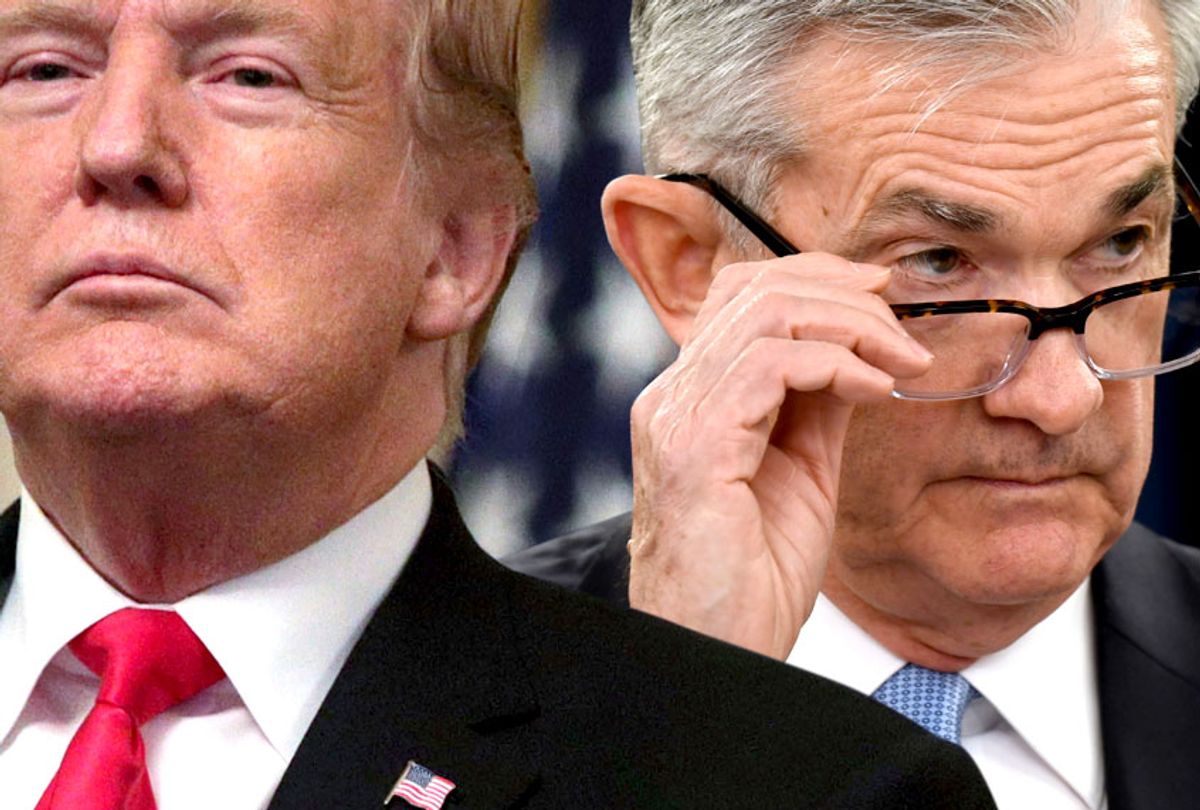President Trump’s hand-picked Federal Reserve chairman and White House economic advisers admitted this week that the Republican tax cuts are failing to deliver the economic growth the president promised.
Trump repeatedly claimed that the Republicans' $1.5 trillion tax cut primarily aimed at corporations and the rich would pay for itself with annual economic growth above 3 percent. Trump went as far as to claiming the cuts might lead to a GDP growth of 6 percent.
Trump’s White House Council of Economic Advisers (CEA) released an analysis in 2017 showing that slashing corporate taxes by 15 percent would lead to GDP growth of 3 to 5 percent.
On Tuesday, the CEA released a revised report showing that the economic gains will fall far short of their initial forecast.
According to the CEA, growth is projected to slow to 2.5 percent by 2022 and then decline to 2 percent by 2026. Even that estimate is rosy, according to most economists, the Washington Post reports, who expect projected growth to fall to 2 percent well before 2026.
The CEA numbers are more optimistic than those of independent economists because the White House must assume that all of Trump’s policy proposals will be implemented, the New York Times reports, including his improbable call to make individual tax cuts permanent, an infrastructure package Trump has stopped mentioning, and a rollback of regulations that states themselves would have to implement, which is not under the control of the federal government.
The CEA estimate predicts a strong 3.2 percent growth in 2019, but that number was contradicted by Federal Reserve chair Jerome Powell on Wednesday.
Powell said in a news conference that GDP growth is slower than expected and the Fed now projects 2.1 percent growth in 2019, well below the White House estimate, and just 1.9 percent growth in 2020.
Powell said that consumer spending and business investment “suggest that growth is slowing somewhat more than expected.” As a result, the Fed is not expected to raise interest rates at all this year over concerns about the slowed growth.
Kevin Hassett, Trump’s top economic adviser, told the Post that the analysis was wrong because the administration was able to achieve 3.1 percent growth over the last year.
“Everyone said we wouldn’t get 3.1 percent,” Hassett said. “We’re relying on the same analysis because nothing has come up which suggests to us it’s not going to happen.”
Marc Goldwein, senior policy director at the Committee for a Responsible Federal Budget, rejected Hassett’s claim.
“We’ve always said 3 percent growth for one year was possible after we gave the economy a lot of stimulus. But you can’t keep giving the economy more stimulus every year,” he told the Post. “There’s nobody that thinks we’re going to be anywhere close to 3 percent growth a year over the next decade.”
Former Federal Reserve chair Janet Yellen made a similar statement to Marketplace last month, noting that there has not been “any meaningful pickup” in business spending as a result of the tax cuts.
“We had a period of remarkable growth in 2018, probably around 3 percent,” she said. “That just isn’t sustainable.”



Shares